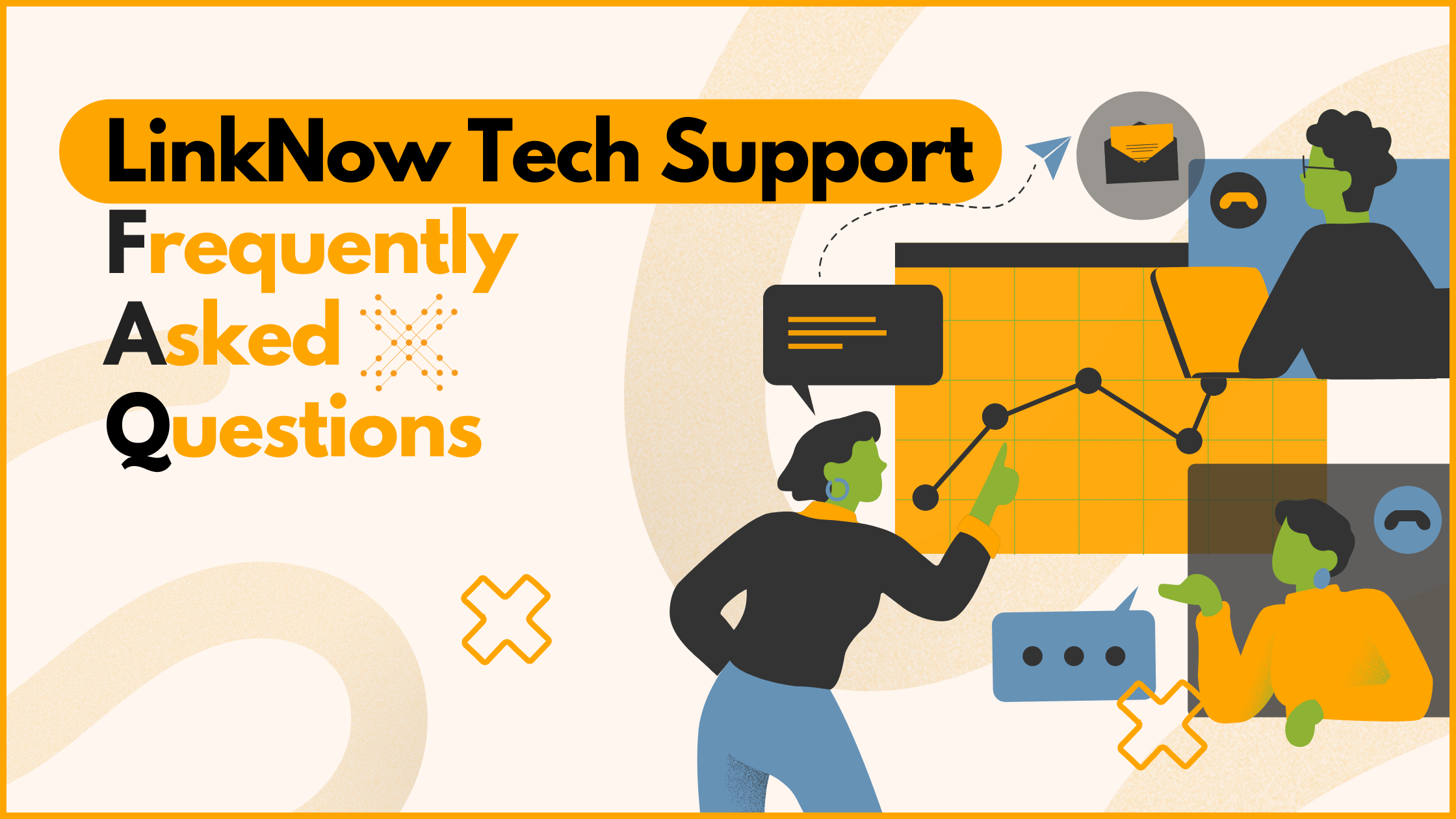
We get it—the fast-paced life of running a small business doesn’t always leave time for staying up-to-date on the technical side of web design, domain hosting, and email servers. That said, many business owners still strive to stay informed about all aspects of their business.
Here at LinkNow, we’ve worked with thousands of small business owners over the years, helping them build solid online footprints while also offering professional education, insight, and advice along the way. In this blog post, we’ll be examining some of our most commonly received tech support questions and breaking things down in easily digestible language, so keep reading if this sounds valuable to you!
What Is a Domain?
A website’s domain is the unique address users type in to find it on the internet. Domains consist of two main parts: the name and the extension.
Domain names are the personalized web addresses users type into their browsers to access your site, like the “linknow” in “linknow.com”. Domain extensions, such as .com, .org, or .net, appear at the end of domain names and indicate the type of organization or purpose of the website.
Why Do You Need a Domain?
Having a domain name establishes your online presence, making it easier for customers to find your business. It also adds credibility and professionalism, which are essential for building trust with both your audience and online search engines.
Additionally, a unique domain enhances your brand identity, helping you stand out in a crowded digital marketplace.
Why Does My Website Need Hosting?
Every website needs hosting to be accessible online. Hosting provides the necessary space on servers where your website’s files, images, and content are stored. Without hosting, your website would not have a home, therefore making it invisible to internet users.
What Is a Domain Name Registrar?
A domain name registrar is a company authorized to register and manage domain names on behalf of individuals or organizations.
When a domain name is chosen for a website, the registrar ensures that the name is unique and not already in use. This process involves checking the availability of the desired domain and facilitating the purchase.
Registrars offer several types of services, including domain name registration, renewal, and transfer. Additionally, many provide value-added services such as domain privacy protection, Domain Name System management, and email hosting.
Popular registrars include GoDaddy, Namecheap, and Squarespace.
What Are Nameservers?
After purchasing a domain from a registrar, you’ll need to ensure that it points to where your website is hosted. This pointing is done with nameservers.
When a domain name is entered into a browser, the request is sent to the nameserver associated with that domain. The nameserver then retrieves the corresponding IP address and directs the browser to the correct location.
Proper configuration of nameservers ensures that websites are accessible and can be reliably found by users around the world. They also prevent individuals from needing to remember complex strings of numbers for each site they wish to visit.
How Often Do I Need to Renew My Domain?
Domains are essentially leased from the company that owns the domain extension and must be renewed on a regular basis, typically annually. If the renewal is unpaid, the domain will expire and come up for purchase after a 30-90 day period.
During the 30-90 day period, the current owner of the domain has the option to retrieve it from redemption, but often at a much higher price.
What’s the Difference Between Regular Email and Forwarding Email Addresses?
Choosing the right type of email address depends on your business needs. Understanding the distinction between regular email addresses and forwarding email addresses can help businesses streamline communication and improve efficiency.
Regular Email Address
A regular email address functions as a standard point of contact. When someone sends a message to this address, it gets delivered to a specific mailbox where the recipient can access, read, and reply to it.
These addresses are typically used for personal, direct communication and can be accessed through various email clients such as Outlook, Gmail, or Apple Mail.
Forwarding Email Address
In contrast, a forwarding email address doesn’t store messages. Rather, it acts as a relay that automatically directs incoming emails to another specified address or multiple addresses.
This setup excels in managing team inquiries, providing quick responses, and ensuring that important messages reach the right people without requiring the sender to know multiple contact addresses.
Do You Still Have Technical Questions?
One of the best reasons to build a website with LinkNow is that it gives you access to our client-focused tech support team. If you still have questions about website hosting, business email, or any other technical aspect of web design, we’ll be happy to answer them for you.
Reach us anytime through our Members Area or by calling us at 1.888.667.7186!


